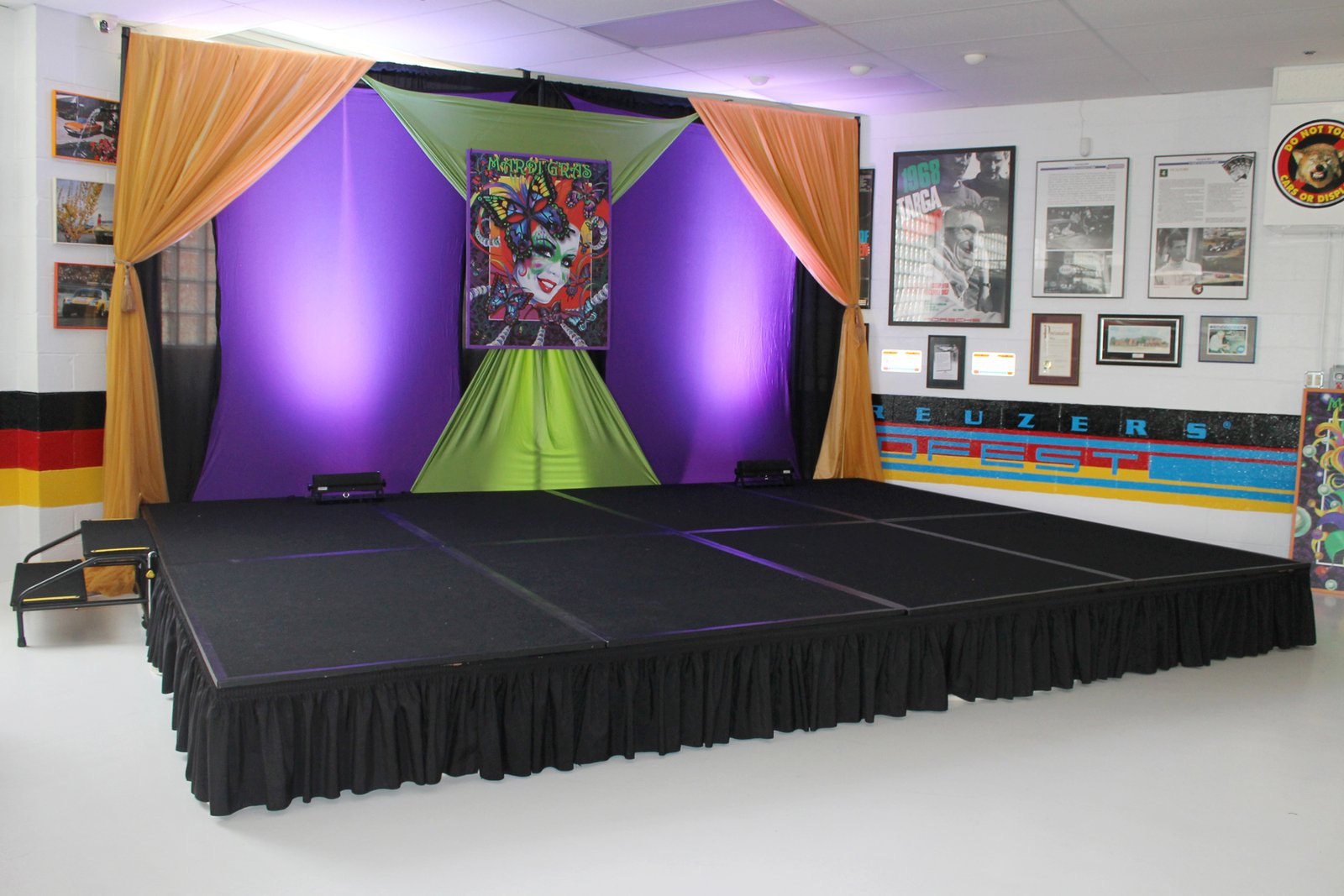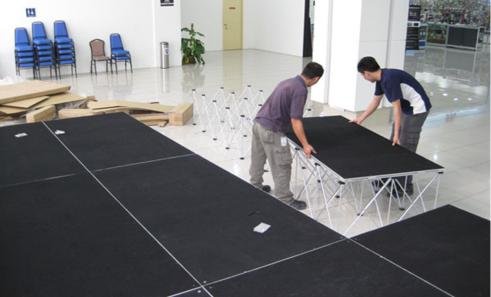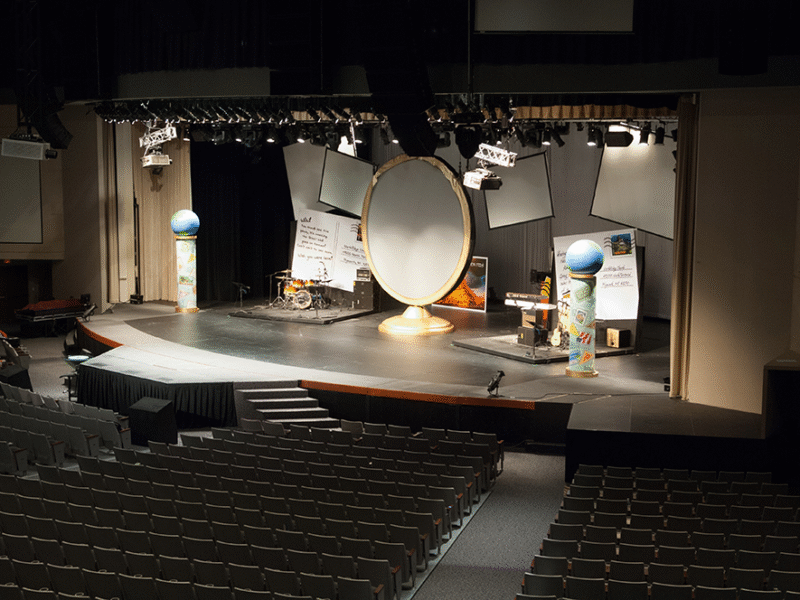When it comes to staging for performances, events, and exhibitions, choosing the right materials for your stage deck is crucial. The choice of stage deck material not only impacts the aesthetics of your venue but also influences safety, durability, and flexibility. In this article, we will explore the most common stage deck materials—plywood, aluminum, and composite—and help you determine which one is right for your venue.
1. Understanding Stage Decks
Stage decks serve as the foundation for performances, providing a stable and safe area for artists and speakers. The right material can enhance sound quality, support heavy equipment, and offer a visually appealing backdrop. Before diving into the materials, it’s essential to consider the specific needs of your venue and the types of events you will host.
2. Plywood Stage Decks
Advantages
Plywood is one of the most traditional and widely used materials for stage decks. Here are some of its advantages:
- Cost-Effective: Plywood is relatively inexpensive compared to other materials, making it a popular choice for budget-conscious venues.
- Versatile: It can be easily cut and shaped to fit various designs and configurations.
- Good Weight Capacity: High-quality plywood can support significant weight, making it suitable for performances with heavy equipment.
Disadvantages
Despite its advantages, plywood does have some drawbacks:
- Susceptible to Moisture: Plywood can warp or swell when exposed to moisture, which can compromise its integrity.
- Limited Durability: Over time, plywood may wear down, especially with heavy use, requiring replacement or maintenance.
Best For
Plywood is an excellent choice for schools, community theaters, and venues with limited budgets that host a variety of events.
See Also: How to Choose the Right Small Platform Stage for Your Venue
3. Aluminum Stage Decks
Advantages
Aluminum stage decks have become increasingly popular due to their unique properties:
- Lightweight: Aluminum is significantly lighter than plywood, making it easy to transport and set up.
- Durability: It is resistant to corrosion and can withstand various weather conditions, making it ideal for outdoor events.
- Modular Design: Many aluminum stage decks are designed to be modular, allowing for quick assembly and disassembly.
Disadvantages
However, aluminum decks are not without their challenges:
- Higher Cost: The initial investment for aluminum can be higher than plywood.
- Potential for Slipperiness: Depending on the surface finish, aluminum can be slippery, so it may require additional treatments for safety.
Best For
Aluminum stage decks are suitable for outdoor festivals, concerts, and venues that require frequent setup and teardown.
4. Composite Stage Decks
Advantages
Composite materials, often made from a blend of wood and plastic, offer a modern alternative for stage decks:
- Water-Resistant: Composite materials are generally resistant to moisture, preventing warping and deterioration.
- Low Maintenance: They require less maintenance than plywood and can withstand heavy use without significant wear.
- Aesthetic Flexibility: Composite decks can be manufactured in various colors and finishes, allowing for customization.
Disadvantages
On the flip side, composite materials have some limitations:
- Cost: They can be more expensive than both plywood and aluminum.
- Weight: Some composite options can be heavier than aluminum, which may complicate transport.
Best For
Composite stage decks are ideal for venues seeking a long-term investment that requires minimal maintenance and offers aesthetic versatility.
See Also: Top Features to Look for in a Portable Stage – Buyer’s Guide
5. Key Factors to Consider
When selecting the right stage deck material for your venue, consider the following factors:
5.1. Type of Events
The nature of the events you plan to host will greatly influence your choice. Plywood may be sufficient for smaller, indoor events, while aluminum or composite may be better suited for larger, outdoor festivals.
5.2. Budget
Your budget will play a crucial role in your decision. Plywood is the most economical option, while aluminum and composite materials may require a greater initial investment.
5.3. Durability and Maintenance
Consider how often the stage will be used and the type of wear it will experience. If you anticipate heavy usage, investing in durable materials like aluminum or composite may be worthwhile.
5.4. Aesthetic Requirements
The visual appeal of the stage can enhance the overall experience for attendees. If aesthetics are a priority, composite materials offer greater design flexibility.
5.5. Safety Features
Ensure that the material you choose meets safety standards for your specific events. Consider factors like slip resistance and weight capacity.
6. Making the Right Choice
Ultimately, the best stage deck material for your venue depends on your unique needs and circumstances. Here’s a quick recap of when to choose each material:
- Plywood: Best for budget-conscious venues hosting varied events with less frequent usage.
- Aluminum: Ideal for venues needing lightweight, durable solutions, especially for outdoor events.
- Composite: Perfect for long-term investments with low maintenance and aesthetic flexibility.
7. Conclusion
Choosing the right stage deck material is critical to the success of your events. By understanding the advantages and disadvantages of plywood, aluminum, and composite options, you can make an informed decision that aligns with your venue’s needs. Whether you prioritize cost, durability, or aesthetics, there is a stage deck material that will suit your requirements perfectly.
As you plan your next event, consider the insights shared in this article to select the ideal stage deck material for your venue. Investing in the right stage deck will ensure a safe, functional, and visually appealing foundation for all your performances.
For more insights and resources on event planning and staging, visit https://non-slip-stage-deck-uk.jimdosite.com/


